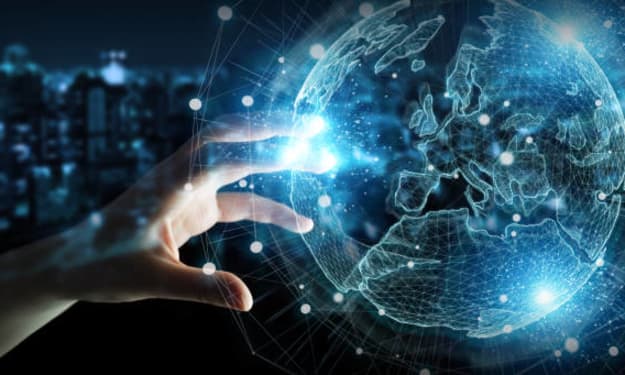
How will climate change shape our future?
Introduction
Climate change is the most serious issue facing our planet, but it's also one of the most difficult problems to understand. In this article, we'll explain what climate change is and how it will affect our future. We'll also explore some ways that we can adapt to these changes in order to save ourselves and our world from disaster.
The future of humanity and the planet is in our hands.
Climate change is happening now. It's not a future threat, but rather a present threat.
Climate change is a threat to our future and to our world.
Climate change will affect every part of our lives.
Climate change will affect every part of our lives. It will affect our health, food, water and energy supplies. It will affect our economy and jobs. And it will impact the environment in which we live and work.
The effects of climate change are already being felt around the world: extreme weather events like droughts or floods; melting glaciers that may lead to rising sea levels; melting Arctic ice cap that could cause more flooding as well as a drop in global temperature (which would mean less snow cover); higher temperatures leading to longer growing seasons for plants such as crops or trees; changes in ocean currents which could affect fisheries production as well as fishing areas near coasts where people live
Climate change is already happening, and it can be felt everywhere.
Climate change is already happening, and it can be felt everywhere.
Climate change is happening now. As you read this sentence, it's likely that your city has experienced some degree of climate change-related weather events—such as extreme heat waves or flooding from heavy rainfall. In fact, global warming has been linked to an increase in extreme weather events around the world: According to a 2018 report from the United Nations Intergovernmental Panel on Climate Change (IPCC), weather disasters like hurricanes and typhoons have increased by 19 per cent since 1980; droughts were up 30 percent; and acidification of oceans has increased by 50 percent since 1960.*
Climate change is also happening everywhere. Scientists say that our oceans are becoming more acidic due to emissions from fossil fuels (like coal) burning in power plants around the world.* And while there may not be any single place on Earth where you can go without seeing evidence of climate change—you may see its effects if you travel far enough away from home—you don't have to go very far at all! Studies show that there are places where glaciers have disappeared entirely over time due not only
Adaptation is a key strategy for dealing with the impacts of climate change.
Adaptation is a key strategy for dealing with the impacts of climate change. It can be done in many ways: on a personal level, on a community level and even at the national level.
Adaptation refers to how we deal with changes brought about by climate change that may lead to negative consequences for humans or ecosystems. Adaptation strategies involve changing our behavior or institutions to reduce these negative consequences.
Climate action is needed now.
Climate change is happening now. The effects of climate change are already being felt, and they will continue to worsen unless we take action now.
The first step in addressing climate change is reducing your own greenhouse gas emissions through energy efficiency and renewable energy sources like solar or wind power. Another important step is transitioning away from fossil fuels towards clean energy technologies such as solar panels or wind turbines, which generate virtually no pollution when used properly.
Finally, there's no doubt that investing in renewable sources of power—like wind turbines—will be a key component of any successful transition away from dirty fossil fuels like coal-fired plants (which produce carbon dioxide) toward clean alternatives like solar panels or hydroelectric dams (which don't).
We must make sure that we are prepared for the impacts of climate change as soon as possible so that we can plan ahead and mitigate its effects on our planet
Climate change is already happening and can be felt everywhere. The effects of climate change are already affecting our lives, our world and the future of humanity. We must make sure that we are prepared for its impacts as soon as possible so that we can plan ahead and mitigate its effects on our planet.
Conclusion
Climate change is not just a future threat; it’s already happening, and it can be felt everywhere. We need to adapt to this reality now so that we can mitigate its effects on our planet and all of humanity. These are some of the most important things we can do as individuals, but there are also many steps that governments and corporations can take in order to create a more sustainable future for us all.





Comments
There are no comments for this story
Be the first to respond and start the conversation.